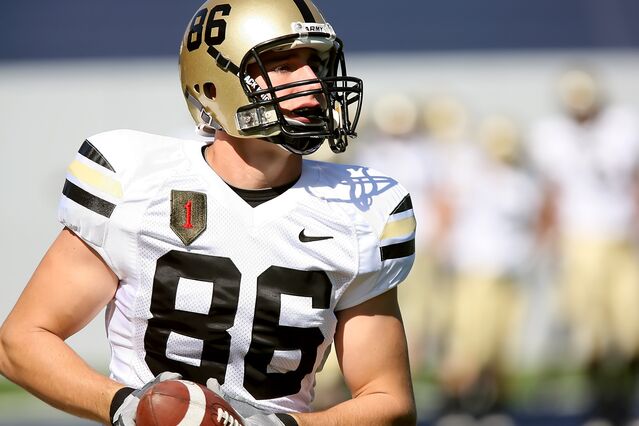Health
Meeting the Mental Health Needs of Athletes
Are sports organizations making the grade?
Posted September 12, 2021 Reviewed by Jessica Schrader
Key points
- Athletes at all levels and in all sports often do not get the mental health care they need.
- Some collegiate athletic departments provide no mental health care for their athletes.
- Sports programs must adapt to changing times by providing athletes with psychoeducation, counseling, and mental health screening.

The fall sports season is here. Millions of fans are again packing stadiums throughout the country. I’m not so sure that’s advisable, but this story isn’t about COVID. It’s about the mental health needs of athletes and how we can help them become more emotionally fit.
Leaders in college athletics and professional sports have spoken passionately about their collective desire to address the mental health needs of athletes. But, talk is cheap. It’s high time these men and women put their money where their mouth is and act on their stated intent.
Inconsistent Mental Health Care in College Sports
The University of Alabama’s football program has long been considered the gold standard in college athletics. Based primarily on the success of its football program, the Alabama athletics department earned $164.1 million in 2019. That revenue supports more than 500 student-athletes and a staff of 359 coaches, support personnel, and administrators. The Crimson Tide employs 20 athletic trainers, 18 academic support staff members, and 15 strength and conditioning coaches, according to its staff directory. As for mental health, Alabama lists just a single staff member.
The Tide’s arch-rival and fellow Southeastern Conference member, Auburn, boasts 24 people in its sports medicine department and 15 each in athletic performance and academic support. The Tiger’s commitment to mental health also consists of one person. But hey, at least they have somebody. Athletic departments at the Universities of Florida and Kentucky have none. In the Big Ten Conference, three schools have no mental health support staff identified on their staff directories. Conversely, the University of Michigan lists a six-person mental health staff.
The bottom line is this: If you’re a student-athlete and you sprain your ankle, your school will take good care of you and promptly get you back on your feet. However, if you’re experiencing dysregulating anxiety, depression, panic attacks, relationship issues, or suffering from addiction or trauma, sorry kid, you’re out of luck. If you need help with academics, strength and conditioning, nutrition, or even marketing, we’ve got you covered. Hell, some schools even employ chefs and massage therapists. Other schools have more than a dozen people to take care of their facilities but nobody to take care of the mental health needs of their athletes.
Nearly a half-million young women and men participate in college athletics each year. Their performances helped college athletics generate 18.91 billion in revenue in 2019. Money isn’t the problem. The problem is that our priorities are out of whack.
Pro Sports Deficient, Too
Lest we focus exclusively on college athletics, it must be noted that professional sports are no better. The NFL and its players' association agreed on a behavioral health initiative in 2019, which requires each team to retain a mental health clinician. However, it doesn’t mandate that teams create a staff position, just that a clinician is on-site at the team facility eight to 12 hours per week. I’m sure the teams and players union are aware that there are 53 players on each roster. Can eight to 12 hours per week adequately service 53 players, in addition to coaches and staff?
Maybe I’m describing a problem that doesn’t exist. Perhaps elite-level athletes don’t experience mental health problems. Maybe they’re different than the rest of us, more mentally tough. Think again. Athletes likely have more emotional problems, not fewer, because of the intense pressure they’re under to perform while being scrutinized by fans and the media.
It appears evident that the leadership at all levels of sports have only paid lip service to the issue of mental health. Yes, there has been progress, but it’s incremental at best. Administrators have not been willing to make substantive changes in the structure of their organizations to adequately address what has become the elephant in the room.
Game Plan for Change
So, how do we fix this?
Is it reasonable to require every sports organization to retain one full-time clinical mental health professional for every 50 athletes in its program? Most universities now have one athletic trainer for every 25 to 30 student-athletes. If we used the same formula, Alabama would need to have a staff of 18 mental health clinicians to serve its sport participants. But, let’s start with a ratio of one licensed clinician for every 50 athletes.
What would all of these mental health professionals do?
- Provide psychoeducational seminars about performance-based identity, gender roles, relationship-building, warning signs of anxiety and depression, establishing boundaries, and differences between substance use and abuse.
- Provide psychoeducational information about the neurobiology of the brain-body connection.
- Teach healthy coping skills to help alleviate or minimize stress.
- Provide weekly individual and group therapy sessions for athletes who are experiencing problematic issues.
- Provide annual mental health screening and evaluations for each athlete and coach.
- Provide referrals for couples and family counseling, psychiatry, and other specialized treatment that may be required.
- Ensure strict confidentiality. Coaches, administrators, and executives are not privy to any information gleaned in therapy.
Effecting change will require student-athletes and their parents, professional athletes and their representatives, and even coaches to raise hell with athletic administrators and organizational executives. It’s time we think about the whole athlete, not just the body. The late, great Yankees catcher Yogi Berra wasn’t exactly a math whiz, but he did show extraordinary insight into the human psyche when he said, “Baseball (sports) is 90% mental. The other half is physical.”
In other words, to perform at peak, athletes must be free of psychological and emotional encumbrance. Thus, if it’s all about the wins (as it surely is), creating fully staffed and funded mental health initiatives is a wise investment. If an athlete’s mind is clear, they can perform better. However, I’d rather not look at this issue through a transactional lens. Caring for the mental health of athletes is simply the right thing to do. They are the heart and soul, the guts, of the organization.
So, professional team owners and executives, college athletics administrators, and Olympic committee principals, the time has come for you to act. The next mental health crisis that will garner headlines and give your team, organization, or sport another black eye is just around the corner. Commit now to act swiftly, broadly, and boldly to provide athletes with the help they need.




